Meet Jessiline Berry AMFT | Associate Marriage and Family Therapist
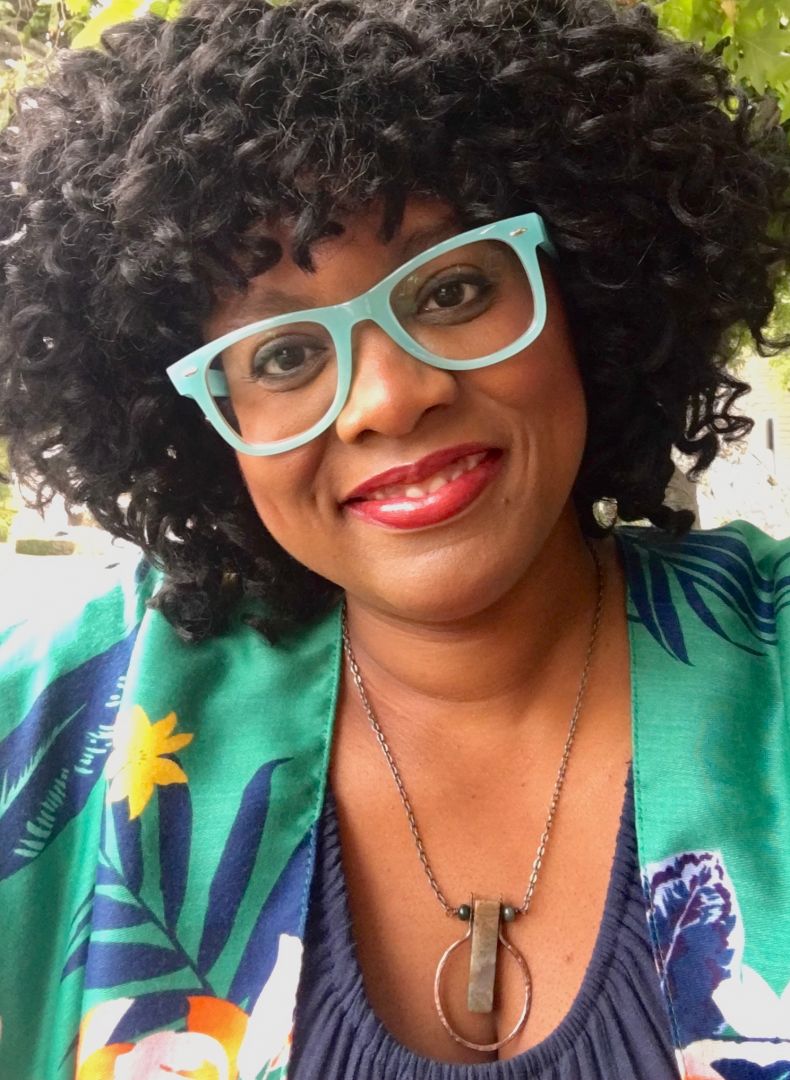

We had the good fortune of connecting with Jessiline Berry and we’ve shared our conversation below.
Hi Jessiline, how did you decide on this career path?
As I wrapped up my time as a trainee and started to imagine where I’d want to do my associate work as a Marriage and Family Therapist, it seemed like I only had two options — solo private practice or agency work. I knew I wanted to bring a level of nuance to my work that didn’t seem congruent with agency work, yet I appreciated that agency work allowed for more of a sense of community than solo practice. Angeles Psychology Group, a private group practice, emerged as the best of both worlds. Not only do I get to benefit from the expertise of the brilliant minds of my colleagues, but they provide so much affirming support for the type of work I’m passionate about giving to my clients. But as a therapist in a group private practice, I still get to shape my practice into exactly what I want it to be. My specialization is trauma recovery and, within that, my niche is supporting clients in accessing sexual vitality as part of recovery from sexual trauma. Trauma survivors so often have distressing symptoms related to their sexual functioning that to not address this at every stage of trauma recovery is a disservice. This very important element of treatment is far too often relegated to aftercare or worse, completely absent from the treatment plan. I’m so excited that, as part of the very design of a group practice, I have the opportunity to work in a way that feels independent, yet is safely nestled in the heart of a lot of supervision and support. It really feels like I get to work for my clients, not just for the practice!

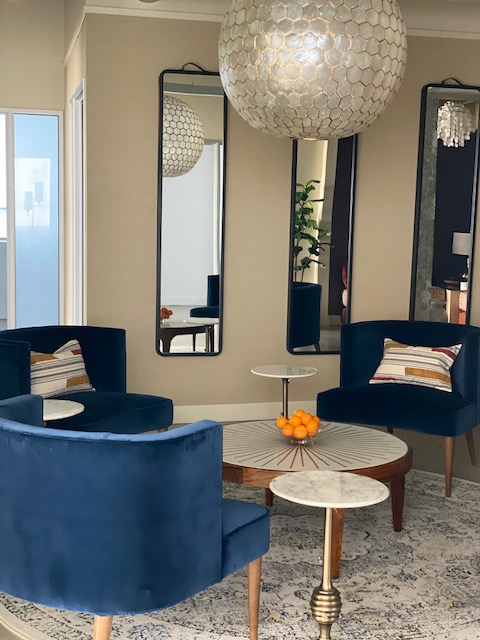

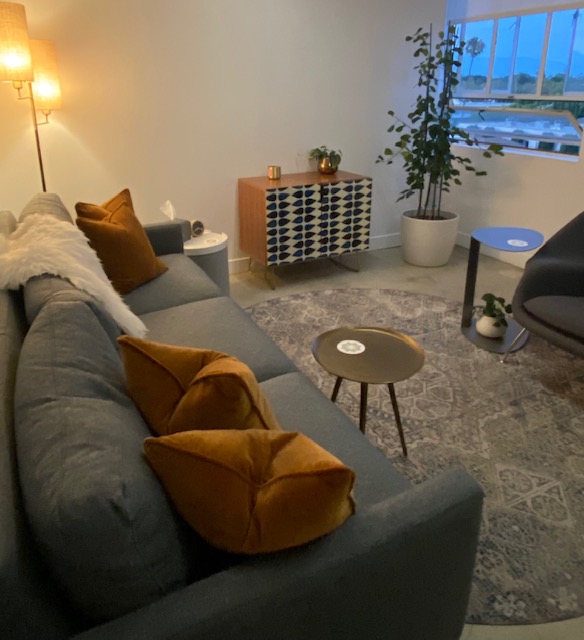
Alright, so let’s move onto what keeps you busy professionally?
I came to psychology through arts and entertainment. I’d earned a master’s degree in film directing from Columbia University and had been in Los Angeles for over a decade, making my way as an independent screenwriter and director. At some point, it became clear to me that what had always been present as a fascination with drama was really just the tip of a much deeper iceberg — a fascination with trauma.
To be honest, I knew I felt called to become a therapist but I wasn’t sure I actually wanted to become one! A mid-life change of career that required the great expense of grad school tuition was not exactly the kind of thing one does on a whim. Also, I was changing careers at a time when many of my friends were reaching the apex of their careers in film/TV. Did I really want to start from scratch and feel like a beginner? So much was unclear. But becoming a mother provided a lot of clarity! As a solo mom, I knew I wanted to work in a way that allowed me the financial resources and schedule that set me up to be the best mom I could be. That meant I needed to be present for my child — physically and energetically. I also wanted to make sure I was modeling to my child that it’s not just possible, but important, to be excited and stimulated by your work. It took eighteen months of self-reflection, meditation, prayer, and informational interviews with people who had undergone mid-life career changes, then people who’d become therapists, then people who’d done their graduate work at the institution that was top of my list. I applied to graduate school, got an interview, completed the interview, got accepted, and even paid my first tuition installment all while still not being certain I was making the right move! My self-identity had been so deeply connected to being a filmmaker; it took a while for me to realize I needed to do some grieving around this very significant transition. But before my first term of graduate school was over (and just before the world as we know it changed so dramatically with the pandemic), I knew I’d found something I loved as much as (if not more than) writing and directing. It was such a thrill to find myself so deeply in love with something new. Instead of being steeped in the overwhelm of newness, I was riding high on the expansiveness of newness. And when I considered what about filmmaking filled my spirit with so much joy, I realized almost everything I came up with was also present in a career in psychology. I wanted to help people see themselves, in all their imperfections, represented and appreciated. I wanted to be of service and use my innate gifts and talents to help others be their best selves. I wanted people to feel less alone. I wanted all of those things for the audiences of my films and now I get to experience all of those things in my therapy room with my clients. And, as often happens in life, when I let go of TV and screenwriting, it came back to hug me tightly. A network I’d worked with in a totally different capacity contracted me to write a script from a pitch I’d sent them after leaving the company. I love the people I work with at that network and because of their faith in me, I got to see, for the first time, one of my scripts broadcast to millions of TV viewers. I now work regularly as a writer, script consultant, and therapist and, though all of those identities inform my work in each of my careers, my self-identity is not rooted in any of my professional identities. Work/life balance is a constant work in-progress, but that’s what’s so great about being a creative person — it doesn’t really matter how you create, just that you’re always open to letting creativity touch you and flow through you to others.
Let’s say your best friend was visiting the area and you wanted to show them the best time ever. Where would you take them? Give us a little itinerary – say it was a week long trip, where would you eat, drink, visit, hang out, etc.
I love to get away with my kid and furbabies, but then I remember that we already live in one of the greatest getaway spots in the country! So I love just riding the coast and checking out different beaches. Something I got really excited by this Summer was beach meditations through The Calming Spot. I’ve been so inspired that I’m aiming to get certification in sound healing so I can facilitate sound baths that center the ancestral beats and rhythms of diverse communities.

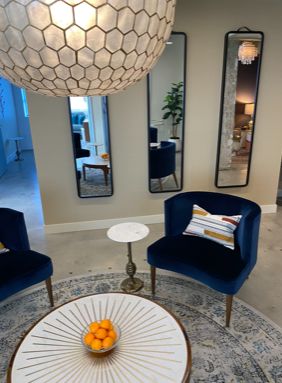
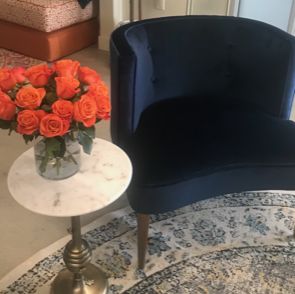
The Shoutout series is all about recognizing that our success and where we are in life is at least somewhat thanks to the efforts, support, mentorship, love and encouragement of others. So is there someone that you want to dedicate your shoutout to?
One of the reasons I chose the graduate program I did was because of their remarkable Spiritual and Depth Psychology specialization. Just being in the presence of the chair, Dr. Michael Silverstein, felt like a deeply spiritual experience. But as I advanced in my studies, I could feel myself craving additional tools and insight around assessing and treating the symptomatology that seemed specific to survivors of trauma. I requested a meeting with Dr. Erica Holmes, the Chair of the Psychology of Trauma Studies specialization, and everything became crystal clear. Talking with Dr. Holmes was like going to the eye doctor after years of not knowing you needed glasses. The clinical lens through which I began to see my clients’ issues became so much sharper after changing my specialization to Psychology of Trauma Studies. Dr. Holmes populated the faculty roster with such care. I was exposed to such profound research and different perspectives about trauma recovery that, ultimately, all supported what I suspected was true coming into graduate school — talk therapy that does not address and include the effects of trauma on the emotional and physical body is insufficient to sustain recovery from trauma.

Website: https://www.angelespsychologygroup.com/team/jessiline.php
Instagram: https://www.instagram.com/angelespsychologygroup/?hl=en
Linkedin: https://www.linkedin.com/company/angeles-psychology-group/
Facebook: https://www.facebook.com/AngelesPsychologyGroup
Image Credits
Angeles Psychology Group
